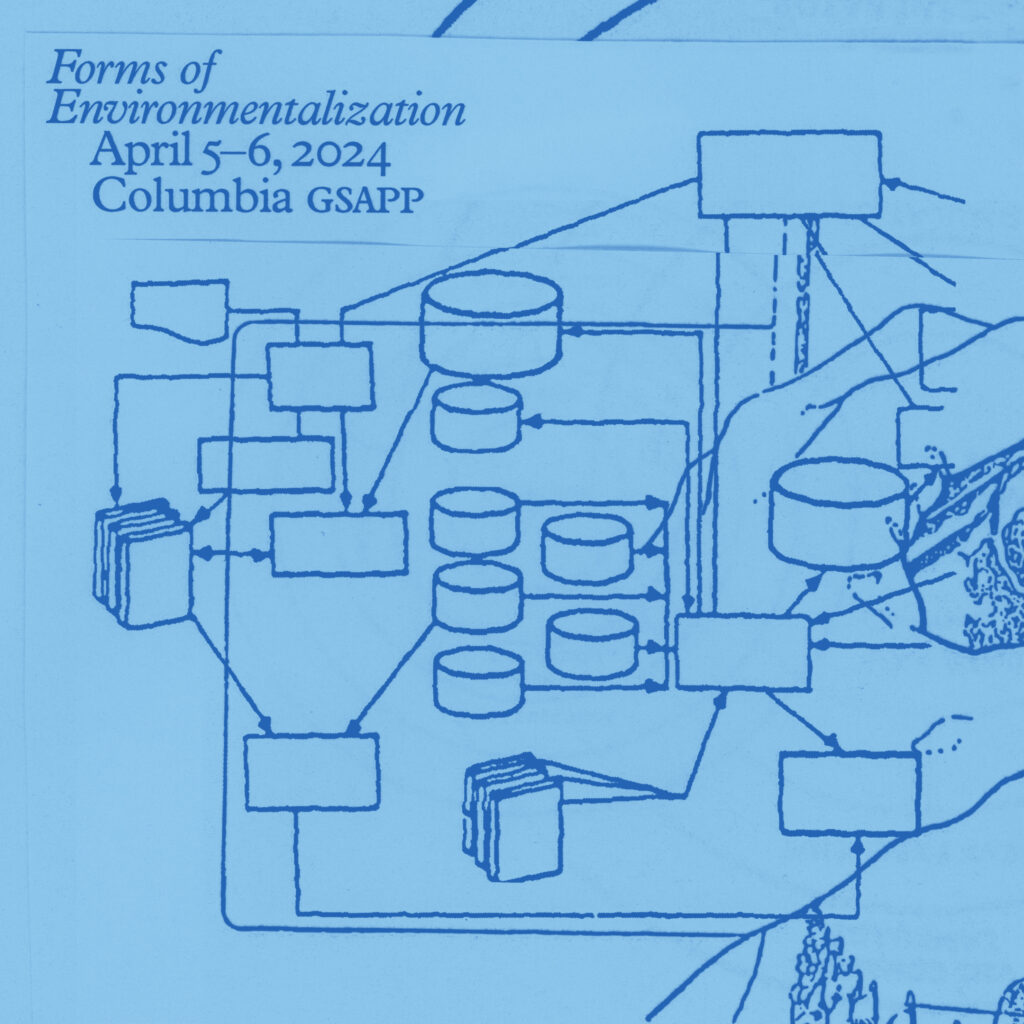
“Environment dates from [the early nineteenth century], in the sense of surroundings, as
in environs (fw environner, F – encircle, rw viron, oF – circuit); it was extended, as in
Carlyle (1827): ‘environment of circumstances.’”
As part of his 1976 encyclopedic work Keywords: A Vocabulary of Culture and Society, Raymond Williams obliquely introduced the term “Environment” under the entry for the history of “ecology.” In his view the use of the term, dating to the nineteenth century, only commenced with the rise of “concern with the human and natural habitat” of environmentalism. Williams’ historiographical reading of the term obscures the way in which constructions of the environment and a cultural notion of depletion were co-constituted. As with the history of the economy as an object of power, measurement, and policy in the 1930s, the history of “the environment” can only be understood through the tools used to make it legible.
Rather than seeking an underlying definition of “the environment” within design practices, this symposium employs “environmentalization” to trace the conditions of possibility that enabled the concept to be taken as a given by the second half of the twentieth century—chiefly towards the ecological cause. By critically addressing the historiographical construction, instrumentalization, and weaponization of “the environment” in the nineteenth and first half of the twentieth century, Forms of Environmentalization aims to question how the ontological proliferation of the term has subjectivized spatial milieus as a tool to be both tamed and constructed.
The organizers invite proposals from doctoral students across disciplines that investigate the historical relationship between design practices and an abstract understanding of “the environment.” The organizers are looking for papers that consider the environment not merely in teleological relation to the formalization of ecology and environmentalism, but as a term whose formulation can be framed as concurrent to that of an ecological thought—whether as initiated by Alexander von Humboldt’s imperial mappings in Kosmos or Thomas Jefferson’s meteorological and propertied conditioning of the American landscape.
While recent scholarship has questioned the origins, boundaries, and hegemony of paradigms such as ecology, climate, nature, and the human/non-human relationship, the environment remains largely accepted as a homogenous, unfuzzy, and apolitical category in scholarship of the built environment. Forms of Environmentalization seeks original papers from Architecture, Art History, Media Studies, History of Science, Anthropology, Comparative Literature, and allied fields that interrogate the terms, scope, and biases of “the environment” historically. The organizers look for submissions that address the non-western, imperial environment in relation to race, gender, and indigenous perspectives that challenge the current focus of scholarship on anthropocentric change. Proposals submitted to the symposium may choose to address the following concerns:
● Feedback loops between natural history, economic imperialism, architectural conditioning, and landscape architecture.
● Histories of improvement and modernization of land, people, and behavior.
● Processes of economic valuation of the environment.
● Mediated and graphic representations of the environment.
● Materialities of the environment.
● The historical conception of “total” environment/landscape/planning.
● The tension between “(un)built environment” and “architecture.”
● Environmental constructions of cultural identity.
Keynote Speaker: To be announced
Location: Fayerweather 209, Columbia University, New York. In-Person.
Organizer: Students in the Ph.D. Program in Architecture, Columbia University Graduate School
of Architecture, Planning and Preservation
Submission information:
Please submit a 350 word abstract here (https://forms.gle/cpBeskM545ELsZbw8), along with a CV and related information.
● The deadline for abstract submission is December 31st, 2023.
● Authors of accepted papers will be notified by the end of January 2024 via email.
● Participants will be asked to submit a full preliminary draft paper by March 24, 2024.
For questions, please reach out to: environmentalizationgsapp@gmail.com
